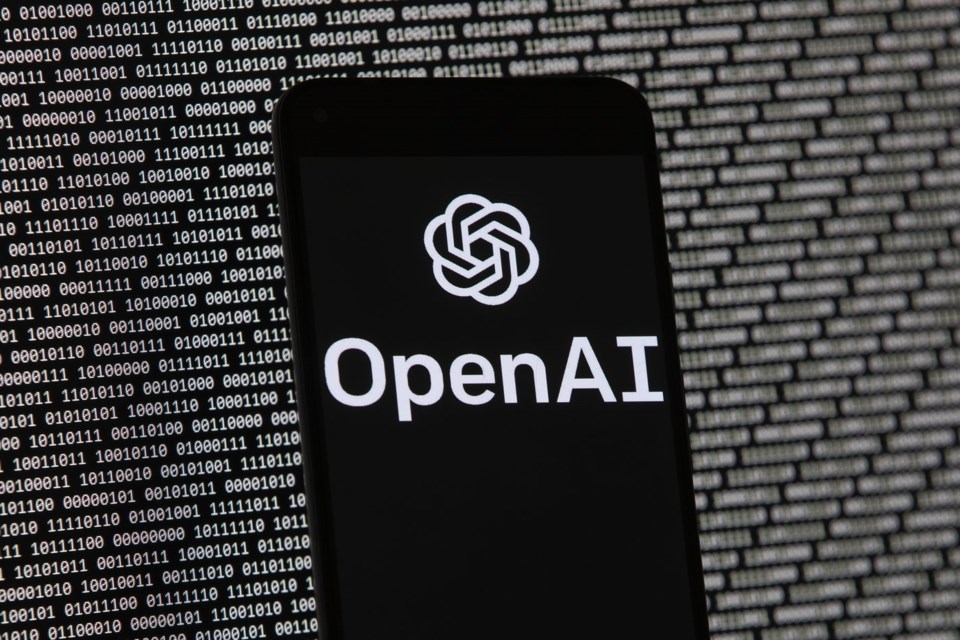A group of investors led by Elon Musk is offering about $97.4 billion to buy the nonprofit behind OpenAI, escalating a dispute with the artificial intelligence company that Musk helped found a decade ago.
Musk and his own AI startup, xAI, and a consortium of investment firms want to take control of the ChatGPT maker and revert it to its original charitable mission as a nonprofit research lab, according to Musk's attorney Marc Toberoff.
OpenAI CEO Sam Altman quickly rejected the unsolicited bid on Musk's social platform X, saying, “no thank you but we will buy Twitter for $9.74 billion if you want.”
Musk bought Twitter, now called X, for $44 billion in 2022.
Musk and Altman, who together helped start OpenAI in 2015 and later competed over who should lead it, have been in a long-running feud over the startup's direction since Musk resigned from its board in 2018.
Musk, an early OpenAI investor and board member, sued the company last year, first in a California state court and later in federal court, alleging it had betrayed its founding aims as a nonprofit research lab that would benefit the public good by safely building better-than-human AI. Musk had invested about $45 million in the startup from its founding until 2018, Toberoff has said.
The sudden success of ChatGPT two years ago brought worldwide fame and a new revenue stream to OpenAI and also heightened the internal battles over the future of the organization and the advanced AI it was trying to develop. Its nonprofit board fired Altman in late 2023. He came back days later with a new board.
Now a fast-growing business still controlled by a nonprofit board bound to its original mission, OpenAI last year announced plans to formally change its corporate structure. But such changes are complicated. Tax law requires money or assets donated to a tax-exempt organization to remain within the charitable sector.
If the initial organization becomes a for-profit, generally, a conversion is needed where the for-profit pays the fair market value of the assets to another charitable organization. Even if the nonprofit OpenAI continues to exist in some way, some experts argue it would have to be paid fair market value for any assets that get transferred to its for-profit subsidiaries.
Lawyers for OpenAI and Musk faced off in a California federal court last week as a judge weighed Musk's request for a court order that would block the ChatGPT maker from converting itself to a for-profit company.
U.S. District Judge Yvonne Gonzalez Rogers hasn't yet ruled on Musk's request but in the courtroom said it was a “stretch” for Musk to claim he will be irreparably harmed if she doesn’t intervene to stop OpenAI from moving forward with its planned transition.
But the judge also raised concerns about OpenAI and its relationship with business partner Microsoft and said she wouldn’t stop the case from moving to trial as soon as next year so a jury can decide.
“It is plausible that what Mr. Musk is saying is true. We’ll find out. He’ll sit on the stand,” she said.
Along with Musk and xAI, others backing the bid announced Monday include Baron Capital Group, Valor Management, Atreides Management, Vy Fund, Emanuel Capital Management and Eight Partners VC.
Toberoff said in a statement that if Altman and OpenAI’s current board “are intent on becoming a fully for-profit corporation, it is vital that the charity be fairly compensated for what its leadership is taking away from it: control over the most transformative technology of our time.”
Musk's attorney also shared a letter he sent in early January to the attorneys general of California, where OpenAI operates, and Delaware, where it is incorporated.
Since both state offices must "ensure any such transactional process relating to OpenAI’s charitable assets provides at least fair market value to protect the public’s beneficial interest, we assume you will provide a process for competitive bidding to actually determine that fair market value,” Toberoff wrote, asking for more information on the terms and timing of that bidding process.
___
The Associated Press and OpenAI have a licensing and technology agreement that allows OpenAI access to part of AP’s text archives.
Matt O'brien, The Associated Press



